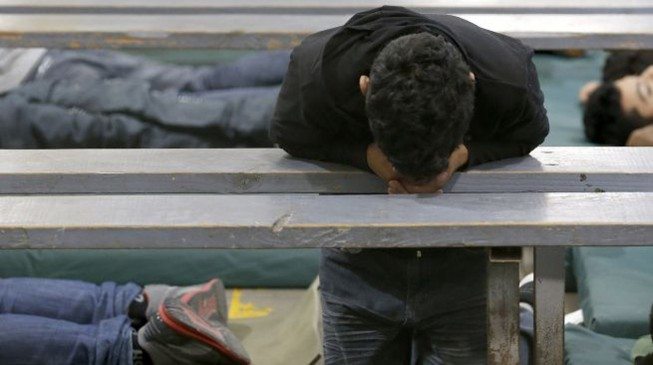My Mother made me sit through every hour of Nuestra Belleza last year. The beauty contest, which airs on Univision, recruits Latinas from the United States and employs the Venezuelan Mr. Higgins, Osmel Sousa, to turn the girls into fembots, ready for the Univision world of bikini-clad models, hot tub contests and variety shows.
Last season, a woman from El Salvador named Marisela Demontecristo caught my Mother’s attention.
During a visit to her childhood home, Marisela showed viewers a twin bed where five of her family members slept. The house had no running water or electricity. A fire burner heated the pan where the family cooked. The walls with faded blue paint spoke of pain and poverty, and also of pride: the family welcomed their beauty queen with a feast, and for one day, everyone ate plentifully.
It wasn’t until the show re-aired that my Mother whispered: “That’s how I grew up.” I looked at her, then at the television. Tears were streaming down her cheeks, and filled my eyes.
“With no electricity?” I asked. She nodded. “We slept in a bed like that. Exactly like that. That’s where we made the arepas, everything. All in one room.”
I sat quietly with her, as I often do. Sometimes, I hold her hand because memories are better lived with someone’s hand clutching your own. I let her remember, and I also let her forget. Safe with me, her memories can float away from her, like ghosts that haunt someone until they find a better home. Her ghosts are mine, but without the power to paralyze me. In fact, they make me stronger. That’s the power of memory filtered through time.
Now, as we watch report after report of the children at the border, I understand why my Mother is worried about how they’re being treated. She understands the hunger and hardship they’re escaping, and why their parents thought they could find a better life in the US. She understands the innocent mind that believes the voice that says: walk north. It’s a paradise.
You know why? Because in many ways, it is. Even the toughest neighborhoods, where many of our friends live, are a paradise when compared to a house with no running water and electricity. If you work hard, you can shop at BJ’s, maybe own a TV, see your children off to a school where they’ll learn to read and write—in English. You can attend church in your own language without fearing violence. The Maras won’t come for your sons.
To some, the families detained at border towns may be foreigners they see on the evening news. To us, they’re friends, often reticent to tell strangers where they’re from, preferring to remain invisible. These are the days when the invisible are becoming visible. The undocumented are our neighbors, our co-workers, our school peers, our friends. It’s time to fight on their behalf.
The first thing to change is our language. Those arriving at our borders aren’t criminals. They’re refugees. They’re not here to deplete, but to contribute. They’re not here to destroy but to build. They want to work and earn enough to help themselves and their families. Anyone with a family understands that desire.
We need to be the country that was created by brave outcasts, outlaws and dreamers. We need to be the country we want to be. A country is only as strong as it treats the weakest among them. Let the world marvel at how well we handled this refugee crisis.
***
Maria Alexandria Beech @alexbeech is a playwright and librettist who lives in New York. Currently, her musical, CLASS, is being workshopped at Hope College. Her play about surrogacy in India, INFINITY POND, was included in the Palm Beach Theatre Festival and Perry-Mansfield New Works Festival, and her play, GOOD FRIENDS, is part of the Crossing Borders Theater Festival in August.



